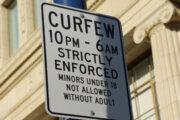Much of life on Earth depends on the day and night cycle. For humans, sunlight triggers our internal clock and causes us to wake. When night comes, the same mechanism sends out a hormone called melatonin, which makes us sleepy and helps the body shut down for the day. This is the circadian rhythm.
However, when we change up our normal schedules, say by staying up too late, we confuse our circadian rhythm. Melatonin is suppressed, and we don’t get the deep sleep we need. When this happens occasionally, we typically feel tired the next day. If it happens regularly, you may experience a range of physiological consequences including depression, diabetes and lowered immune function.
Luckily, if your circadian clock does get a little off kilter, there are a number of simple remedies you can try at home to correct it. With a little effort, you can resynchronize your body’s biological clock to reach deep, regenerative sleep.
How Do Circadian Rhythms Work?
For the human body’s circadian rhythms to work well, you generally need 12 hours of daylight and 12 hours of darkness. To your brain, that 12 hours starts when your eyes begin to perceive light.
“The eyes serve two functions,” says Dr. Alon Y. Avidan, a professor of neurology at the University of California Los Angeles, where he serves as director of the UCLA Sleep Disorders Center. “Sight and the circadian signal.” As the sun rises, light travels into the eye and sends a signal that stimulates the circadian master clock, explains Avidan. The circadian master clock is also known as the suprachiasmatic nucleus (SCN). Once stimulated, the SCN signals to every part in your body that it’s time to wake up, and then it keeps us alert and awake.
As day turns to night, outdoor temperatures cool off and we stop exerting ourselves. Once again the SCN starts to signal to your body’s cells, telling them to wind down. “During darkness … the absence of light stimulates the production of melatonin in the brain,” says Avidan. Melatonin then travels to the SCN and helps our brains and bodies calm down. Our blood pressure lowers and our metabolism slows. In other words, it’s time to sleep.
[See: Steps to Fall Asleep Fast.]
What Causes Circadian Rhythm Sleep Disorders?
We tend to sleep and wake on autopilot — when everything is functioning properly, our circadian rhythms aren’t noticeable. However, when we travel to a different time zone, start shift work, stay up much later than normal, or sleep in longer than normal, all of these things can affect our circadian rhythm.
“Light is the signal,” says William Walker, a postdoctoral fellow in the department of neuroscience, Rockefeller Neuroscience Institute at West Virginia University School of Medicine in Morgantown. Light “regulates all the other clocks in the body.” Without that signal, your circadian rhythm is disrupted.
The change in the amount of light exposure is what causes circadian rhythm disorders like jet lag. When your brain doesn’t get the right amount of light that it expects at the right time, the end result is often fatigue until your circadian rhythms get back on track.
However, you can continue to disrupt your circadian rhythms by staying up too late to binge watch Netflix or take a new job that requires shift work at hours when you’d normally be sleeping. And if you’re not paying attention, a lot of these triggers could happen at once, making it more difficult to regulate your circadian clock.
For people who have experienced long-term circadian rhythm disruptions, they’re at increased risk for a variety of health issues, including cancer, metabolic disorders, cardiovascular disease and depression.
Further complicating the matter is the ongoing COVID-19 pandemic. “Nowadays we’re also in a quasi virtual existence,” says Avidan. During the pandemic, people have stayed indoors more, so their sunlight and light exposure is limited. Furthermore, being social also helps your circadian rhythms. “When you’re socially distant,” Avidan explains, “you’re making it even more difficult to sleep.” Removing day-to-day social interactions and staying indoors further disrupts human circadian rhythms. It can make us anxious and confused, and it can cause sleep disruption due to increased anxiety — especially if you’re staying up late watching the news.
“With circadian rhythms being delayed, that has a toll on metabolism,” says Avidan. “In the days of the pandemic, people have gained weight and may have developed diabetes.” The body’s immune function, heart rate and blood pressure, and our ability to comprehend information is all dependent on the circadian rhythm.
[READ: Coronasomnia — Another Byproduct of the Pandemic.]
How Can I Regulate My Circadian Rhythm?
Do:
— Turn off all lights for a period before bed.
— Try to go outside in the early morning for bright sun exposure.
— Exercise regularly and when you’re feeling most active.
— Stick to your normal schedule.
— Cool your room for sleep.
Don’t:
— Eat late at night.
— Drink alcohol or take a sedative right before bed.
The best way to regulate your circadian rhythm is through light exposure — but at the proper time. “You have to be careful with the timing of light,” says Walker. “You want bright blue light in the morning. You don’t want light at night.”
According to one recent study, most artificial lights can suppress melatonin at nearly any intensity most people are exposed to at night. For those who can’t completely turn the lights out, Walker recommends using the reddish orange “night mode” settings for laptops and cell phones, and suggests that glasses that filter out blue light might be helpful, but more research is needed.
Some may find it helpful to take small amounts of melatonin a few hours before they go to sleep to give their SCN an extra boost and to help them reach deeper sleep.
Avidan suggests that the use of a cooling pillow can help reduce overactive brains typically seen in insomniacs. “It can be very helpful to keep people asleep and help them fall asleep,” says Avidan.
Other ways to make the sleep environment more conducive to sleep is to keep the environment cool, say with cooling mattresses or cooling sheets, dark, well-ventilated and away from the street where light and noise can cause you to wake up. The goal, according to Avidan, is to “make it as much of a sanctuary for sleep as (you) can.” This may mean buying a more comfortable mattress, black-out curtains or a weighted blanket to give you your best sleep.
During the day, exercise is useful and can help boost quality sleep, says Avidan. Try to exercise regularly and at least four hours before bedtime so that you’re primed for sleep. Avoid drinking alcohol anywhere between three to four hours before you sleep. “Alcohol tends to be very disruptive to sleep,” says Avidan. Alcohol as well as certain foods can make your sleep more fragmented and cause you to wake during the night, which doesn’t allow for quality sleep.
Walker and Avidan say that maintaining a regular bedtime is one of the most important things to overcoming circadian rhythm disruptions. Sleep can be repaid on the weekend, but you have to repay it at a very high interest rate. “For every hour of sleep lost, you need a full eight hours of good sleep for recovery,” says Avidan.
[READ: Foods for Better Sleep.]
FAQ
When Do Babies Develop Their Circadian Rhythms?
For parents of newborns, getting a baby to sleep can be an extra challenge — especially since babies aren’t born with circadian rhythms already established, and not all babies develop rhythms at the same rate. Some babies may start to develop rhythms within a week, but others may take weeks to a few months.
Multiple factors, including feeding times, whether it’s breast milk or formula, and environmental lighting can affect the development of circadian rhythms. Babies don’t have the same responses to the day and night cycle that older humans do, and follow maternal rhythms and social cues to sleep until they develop their own.
Learn More About 360 Reviews
Best Cooling Mattresses of 2022
Best Mattresses for Back Pain of 2022
More from U.S. News
Possible Causes of Sleepwalking
What Are Circadian Rhythms? originally appeared on usnews.com







